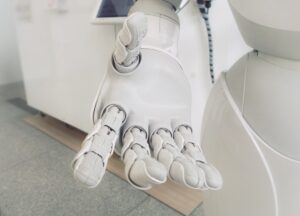Imagination is the ability to form mental images, ideas, and concepts that are not present in our immediate reality. It is a fundamental aspect of human cognition and plays a crucial role in our lives. Imagination allows us to explore possibilities, create new ideas, and envision a different future. It is the driving force behind innovation, creativity, and problem-solving. Without imagination, our world would be stagnant and devoid of progress.
Key Takeaways
- Imagination has the power to shape our reality and influence our lives.
- The neuroscience of imagination shows that our brain has a creative capacity that can be nurtured.
- Benefits of imagination include improved problem-solving skills, increased empathy, and reduced stress.
- Imagination has influenced art, science, and society throughout history.
- Imagination plays a crucial role in personal growth and development, and can help overcome limiting beliefs.
How Imagination Shapes Our Reality
Our thoughts and beliefs have a profound impact on our reality. Imagination shapes our perception of the world and influences how we interact with it. When we imagine something vividly and believe in its possibility, it becomes a part of our reality. For example, envisioning ourselves achieving a goal or overcoming an obstacle can increase our motivation and drive to make it happen.
The connection between imagination and reality is not just psychological; it also has a neurological basis. Studies have shown that when we imagine something, the same areas of the brain are activated as when we experience it in reality. This suggests that our brain does not distinguish between real experiences and imagined ones. Therefore, by harnessing the power of imagination, we can shape our reality and bring about positive change in our lives.
The Neuroscience of Imagination
The human brain is incredibly complex and has a remarkable capacity for creativity and imagination. The prefrontal cortex, which is responsible for higher cognitive functions such as decision-making and problem-solving, plays a crucial role in imagination. It allows us to generate new ideas, visualize possibilities, and think outside the box.
Imagination is not just a frivolous activity; it has practical applications as well. Research has shown that imagination can enhance problem-solving skills by allowing us to explore different scenarios and potential solutions. It also helps us make better decisions by enabling us to consider multiple perspectives and anticipate the consequences of our actions.
The Benefits of Imagination
Imagination has numerous benefits for our mental, emotional, and social well-being. Firstly, it enhances creativity and innovation. By allowing us to think beyond the constraints of reality, imagination opens up new possibilities and encourages us to explore unconventional ideas. This is crucial for artistic expression, scientific discovery, and technological advancements.
Secondly, imagination has a positive impact on our mental and emotional well-being. It provides an escape from the stresses and pressures of everyday life and allows us to relax and unwind. Engaging in imaginative activities such as reading, writing, or daydreaming can reduce anxiety, improve mood, and increase overall happiness.
Furthermore, imagination fosters empathy and understanding. By imagining ourselves in someone else’s shoes, we can develop a greater sense of compassion and empathy towards others. This is particularly important in building strong relationships, resolving conflicts, and promoting social harmony.
Imagination in Action
Imagination has had a profound influence on art, science, and society throughout history. Countless works of literature, music, and visual art have been inspired by the power of imagination. From the paintings of Salvador Dali to the novels of J.R.R. Tolkien, imagination has shaped the creative landscape of our world.
In the field of science, imagination has played a crucial role in groundbreaking discoveries and inventions. Scientists such as Albert Einstein and Nikola Tesla used their imaginations to envision new theories and technologies that revolutionized our understanding of the universe.
Moreover, imagination has shaped history and culture. From the dreams of Martin Luther King Jr. that inspired the civil rights movement to the visions of Mahatma Gandhi that led to India’s independence, imagination has been a driving force behind social change and progress.
The Role of Imagination in Personal Growth and Development

Imagination is not just a tool for external achievements; it also plays a vital role in personal growth and development. By using our imagination, we can envision our goals, dreams, and aspirations. This helps us clarify our values, set meaningful objectives, and take steps towards achieving them.
Furthermore, imagination is essential for self-discovery and self-expression. It allows us to explore our inner world, understand our emotions and desires, and express ourselves authentically. Through creative activities such as writing, painting, or dancing, we can tap into our imagination and connect with our true selves.
Overcoming Limiting Beliefs with the Power of Imagination
Our imagination can be a powerful tool for overcoming limiting beliefs and negative thought patterns. By visualizing ourselves successfully overcoming obstacles or achieving our goals, we can reprogram our subconscious mind and replace self-doubt with confidence.
There are various techniques that can be used to harness the power of imagination for personal growth. Visualization exercises, affirmations, and guided imagery are some examples. These techniques involve creating vivid mental images of desired outcomes and repeatedly reinforcing positive beliefs.
The Dark Side of Imagination
While imagination is a powerful tool, it can also have a dark side. Excessive daydreaming and escapism can lead to a disconnection from reality and hinder personal growth. It is important to strike a balance between imagination and action, ensuring that we use our imaginative abilities to create positive change in our lives rather than escaping from it.
Nurturing Imagination in Children
Imagination is particularly important in childhood development. Parents and educators can play a crucial role in nurturing children’s imaginations by providing opportunities for imaginative play, storytelling, and creative expression. Encouraging children to explore their imaginations not only enhances their cognitive abilities but also fosters their emotional intelligence and social skills.
The Future of Imagination
As we move into the future, imagination will continue to shape our world in profound ways. With the rapid advancements in technology and the increasing complexity of global challenges, imagination will be crucial in finding innovative solutions and creating a better future.
The potential for imagination to solve global challenges is immense. By envisioning a sustainable and equitable world, we can work towards achieving it. Imagination can inspire us to think beyond the limitations of the present and create a future that is more inclusive, compassionate, and harmonious.
Imagination is a powerful and essential aspect of human cognition. It shapes our reality, enhances our creativity, and fosters personal growth. By harnessing the power of imagination, we can overcome obstacles, achieve our goals, and create positive change in our lives and the world around us. It is important to nurture and use our imaginations to improve our lives and make a meaningful impact on the world. So let us embrace our imaginations and unleash their transformative power.
If you’re fascinated by the intersection of technology and entertainment, you’ll love this article on AI-powered movie background scenes. Discover how artificial intelligence is revolutionizing the way movies are made, creating stunning and realistic backgrounds that enhance the overall cinematic experience. From futuristic cityscapes to breathtaking landscapes, AI is pushing the boundaries of creativity in the film industry. Check out this article to learn more about this exciting development in filmmaking.



